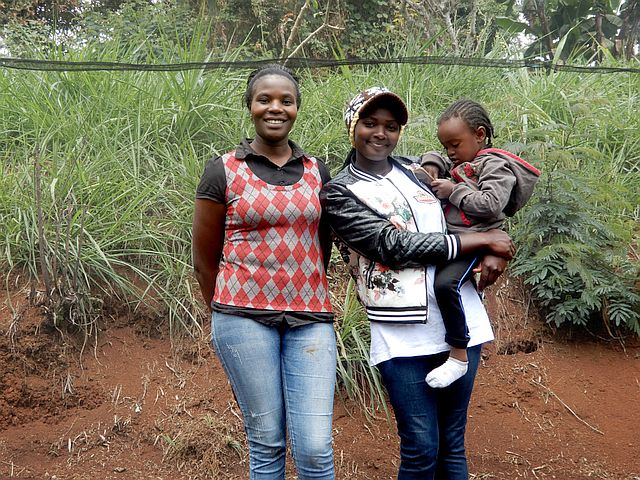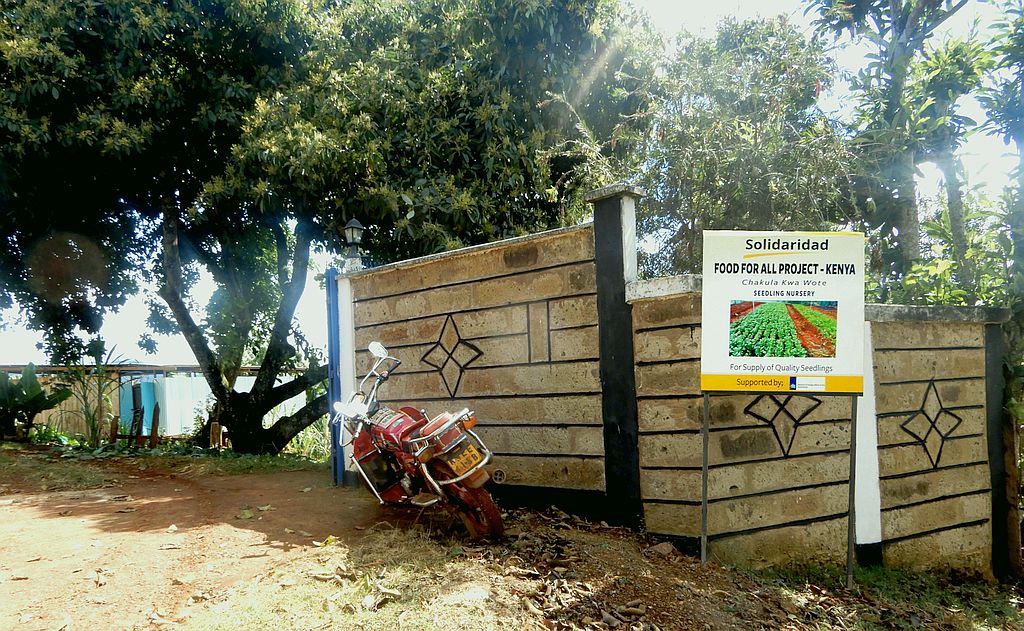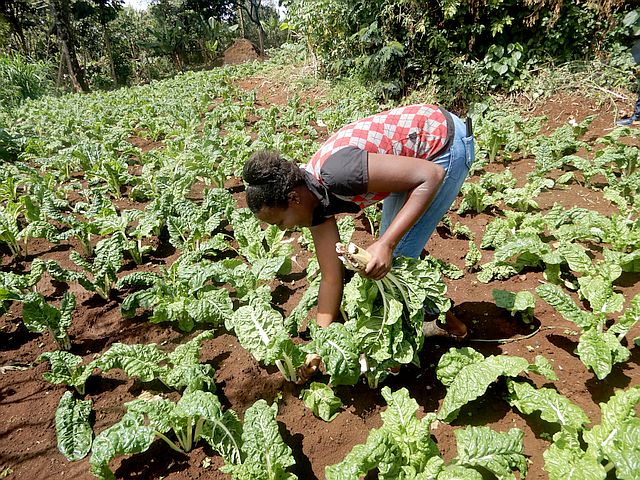“Horticulture is what brought us together,” says Christine Kinywa, chairperson of Hope Youth Group in Gianchuku village, central Kenya, which celebrated its fifth anniversary in 2019. “Solidaridad gave us seedlings and constructed a shade net to enable us to start a vegetable nursery. Then we came together and turned things around.”
Christine Kinywa and Annabel Karithi of Hope Youth Group, Gianchuku village, Tharaka Nithi County, Kenya
Reinvesting the profits
Hope Youth Group plants beetroot, broccoli, cabbage, peppers, kale, onions, spinach and tomatoes, depending on the season. Its seedling clientele comprises nearly 70 regular customers, including five farmer groups and three schools. The group also plants some of the seedlings on the farm adjacent to the nursery and sells the produce at the farm gate to local vendors, hotels and families.
Each of the group’s 30 members is aware of the type of seedlings in the nursery – currently, spinach, kale, tomato and cabbage – and is required to source at least three buyers for the seedlings. This creates more market linkages for the group. “We now supply over 5,000 spinach seedlings per month. And we’ve been able to reinvest the profits in the business,” Christine says.

The nursery and model farm are supported by the Food for All Project
The initiative is part of the Food for All Project, which is working towards improving the resilience and livelihoods of horticulture farmers across Kenya. To improve the quantity and quality of produce, Solidaridad is working with women and young people to create sustainable channels supplying quality seedlings to neighbouring farmers.
Better seedlings for better returns
"Good nursery establishment and management practices ensure you stay on top of 70% of the problems associated with seedlings," says Moses Ndiritu, Solidaridad's county projects coordinator of the Food for All Project. "Problems like low germination capacity to poor seedling development.
"We trained youth group members in nursery management practices including pest and disease scouting and management, how to water seedlings using drip technology, and thinning and hardening-off the plants. This guarantees quality seedlings, which transforms into more farm returns."
The best way to involve young people is by providing agripreneurs with training on good agricultural practices and increasing their opportunities within the value chain” – Christine Kinywa, Hope Youth Group, Kenya
Peer-to-peer training
To ensure sustainability and scalability of the programme, Solidaridad promotes peer-to-peer learning by training lead farmers who in turn train other farmers in good agricultural practices and innovations in the sector. Within Hope Youth Group, Christine and farmer Annabel Karithi are trainer of trainers (TOTs).
Model farming
They work with other farmers, share their knowledge and experiences, and form local networks. It is through these farmer groups that Christine and Annabel are able to determine the type of seedlings farmers require so that they can focus on those varieties. Annabel trained over 500 farmers this year on her farm, which is also a model for the introduction of drip irrigation technology to farmers in the area.

Christine harvesting spinach
How to inspire young agripreneurs
“It is all about passion,” says Christine. “Young people are usually not attracted to farming because they do not want their hands to get dirty. Through the efforts of Hope Youth Group and the establishment of the nursery, young people in the surrounding areas have started to see the benefits of the project and are now more open to taking up agriculture.
"The best way to involve young people is by providing agripreneurs with training on good agricultural practices, giving the group inputs, and encouraging them to develop their agricultural skills and to establish nurseries, market their produce and increase their opportunities within the value chain.”
Building their own market linkages
Hope Youth Group is now planning to open greengrocer outlets in nearby towns through which they will sell produce from their farm. They also aim to expand the land under cultivation from one acre to five acres to scale their business model.
>Read more about Solidaridad's work in the fruit and vegetable supply chain
